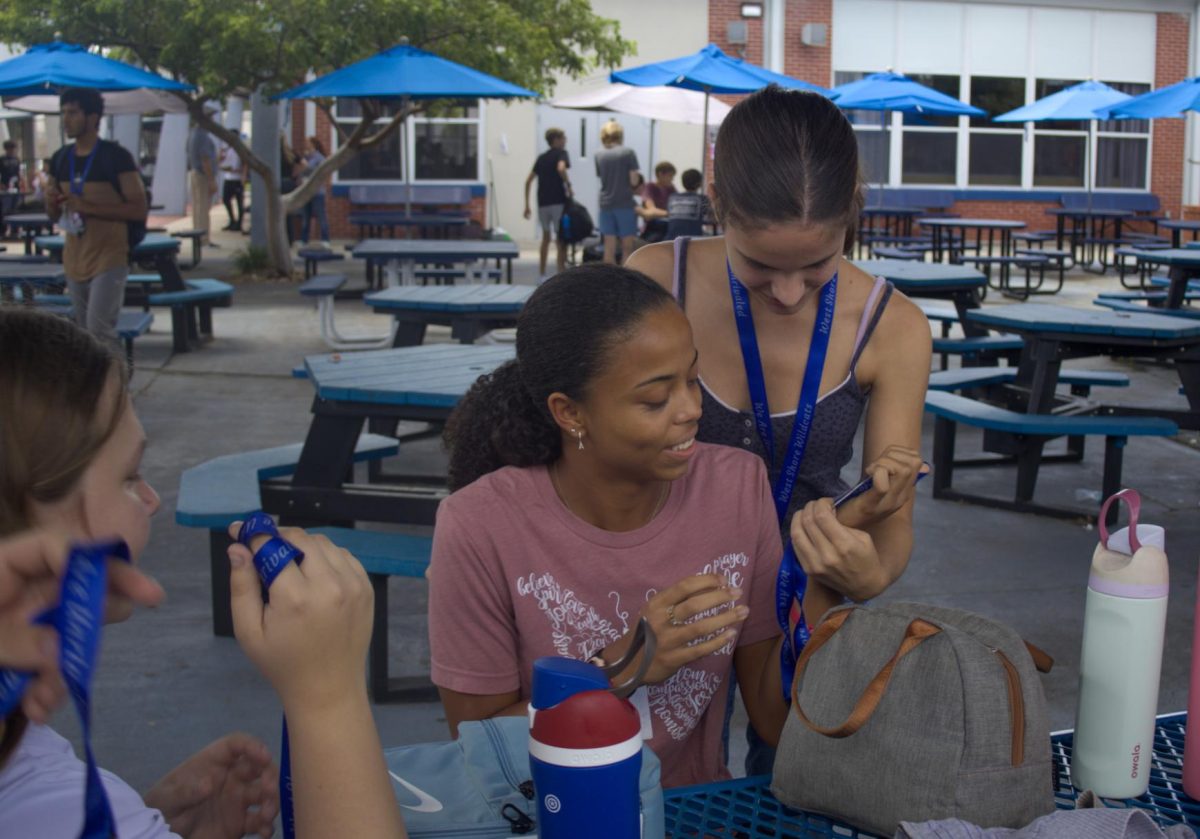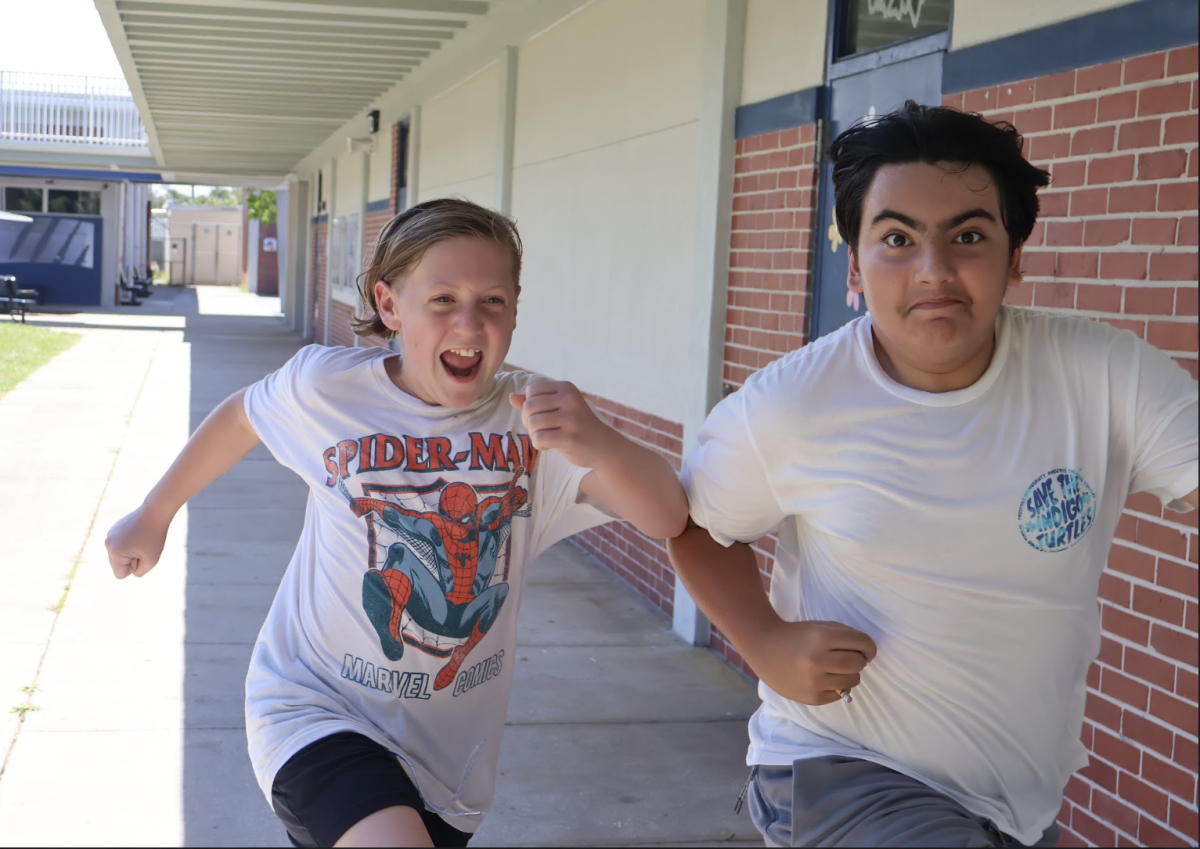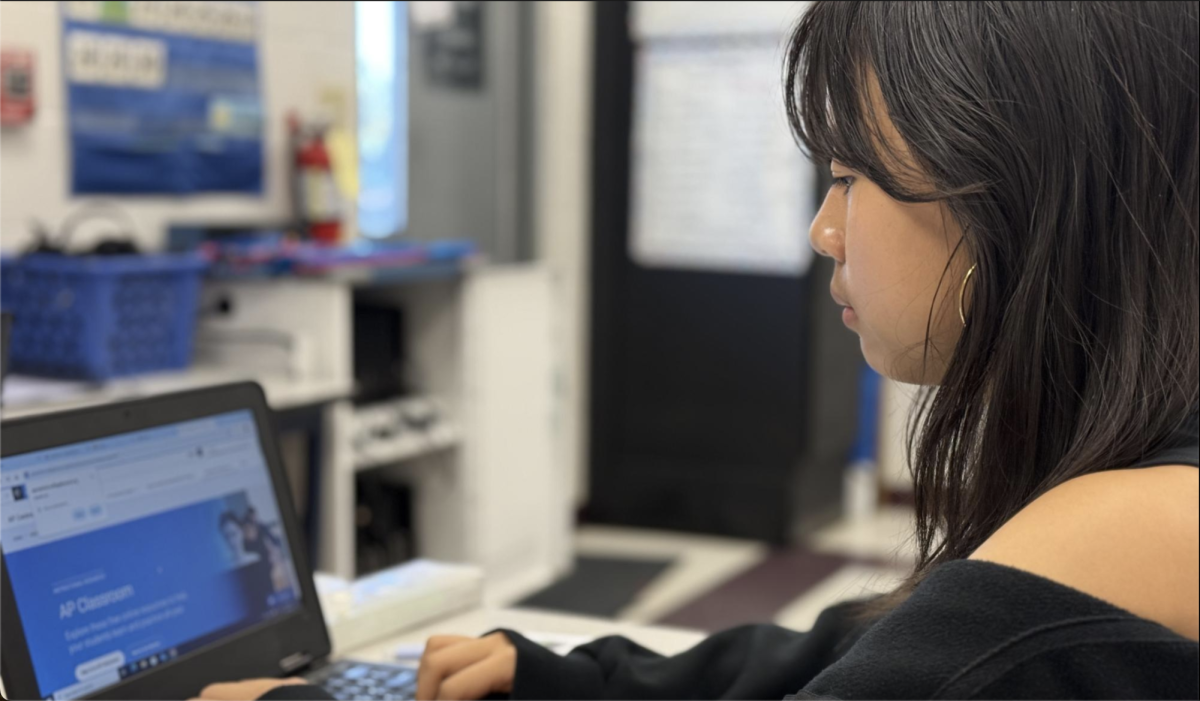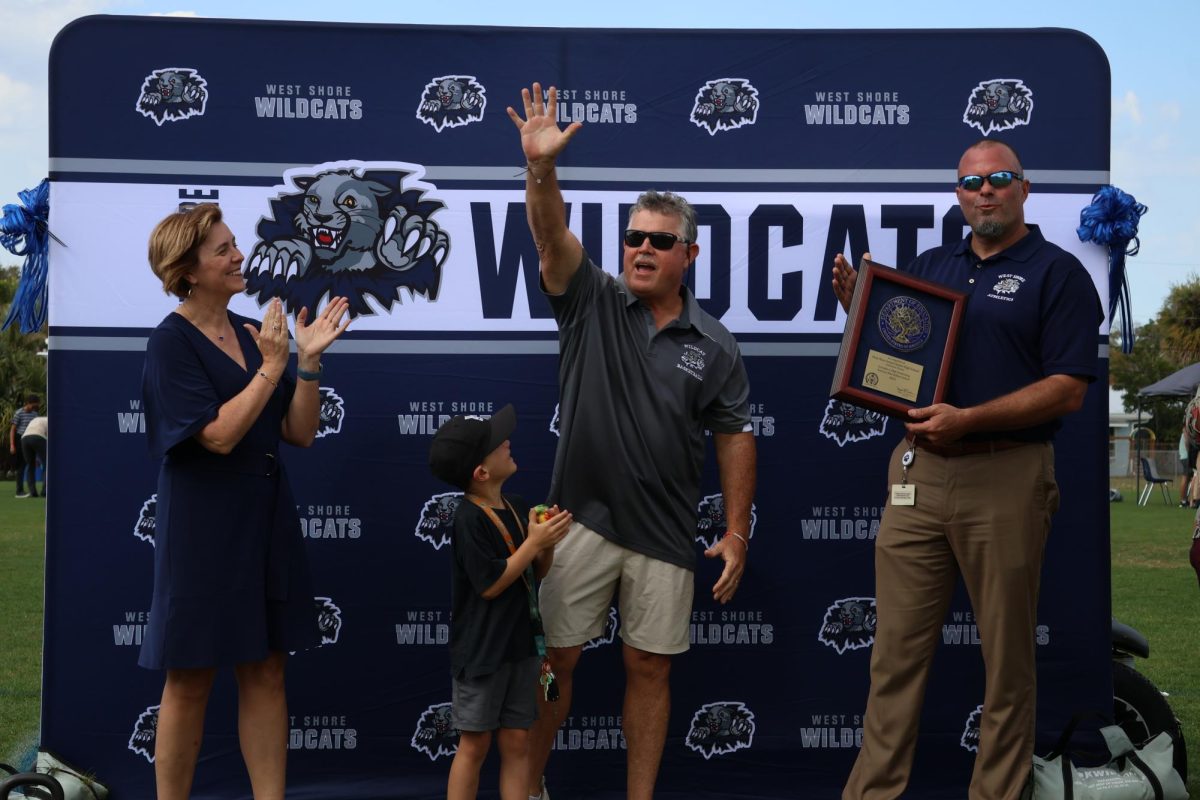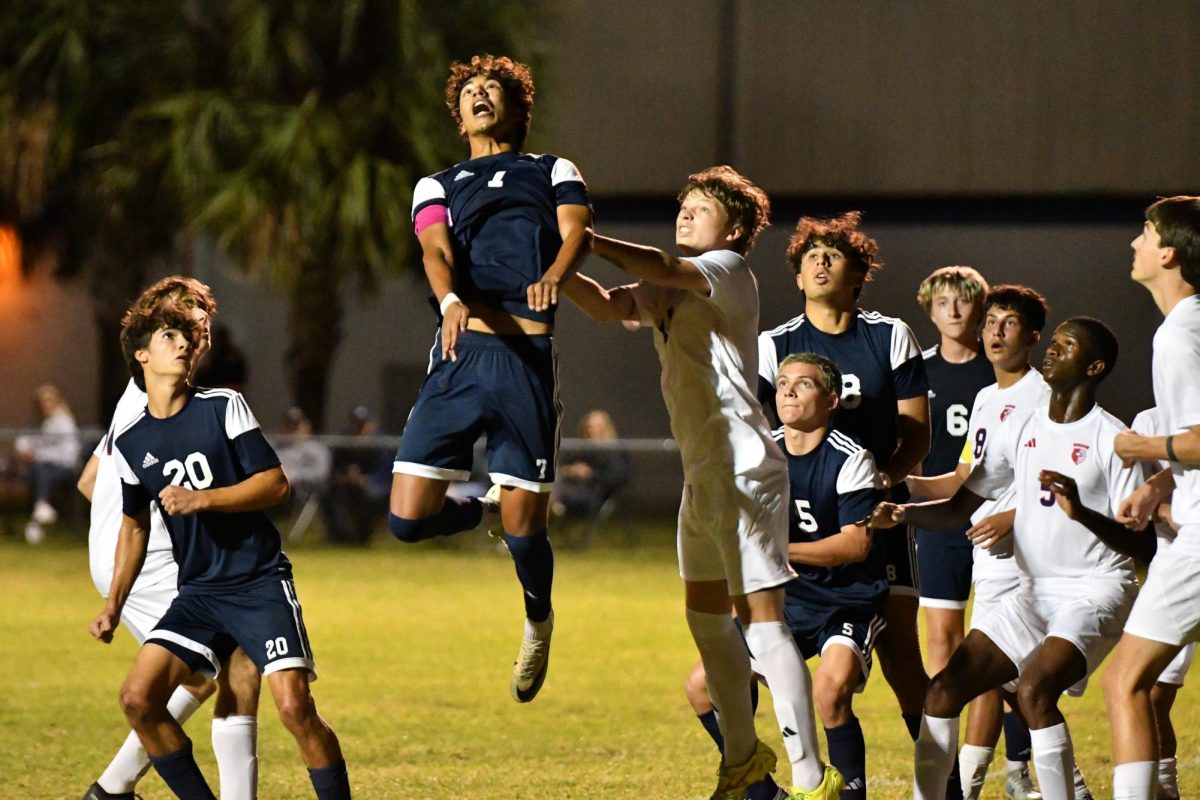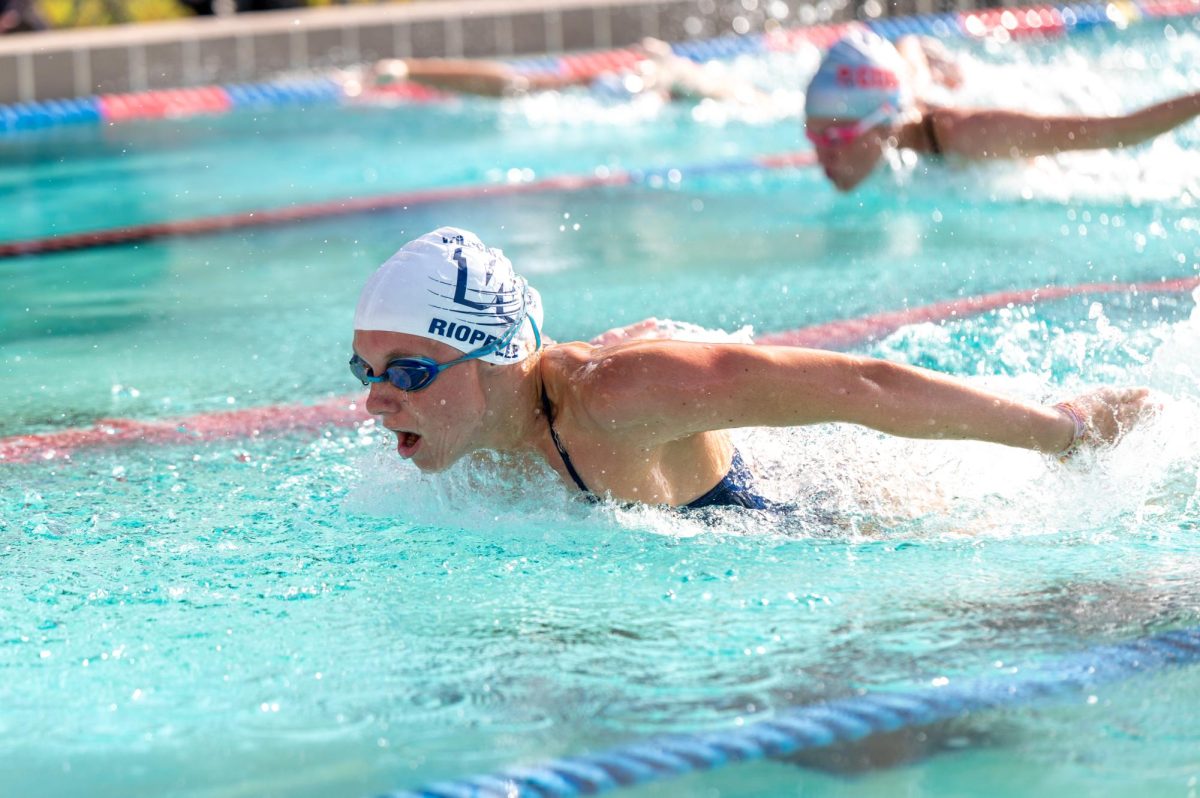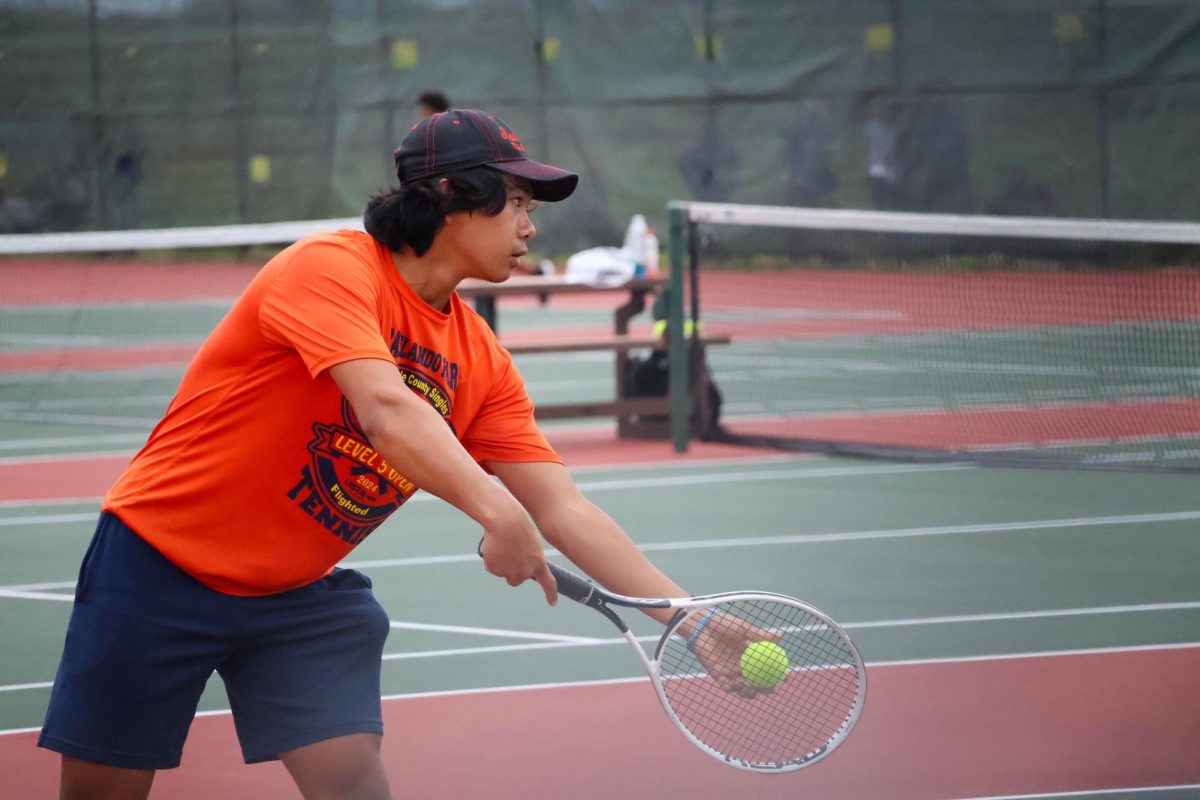After lacing up his cleats, junior Diego Prieto steps onto the turf field at Belen Jesuit Preparatory School in Miami and mentally runs through how he wants to play his game. For the boys’ soccer team to succeed in South Florida, each player would have to compete at their full potential.
“I’m just trying to keep it simple and play my game,” Prieto said. “I know what I can do best. I need to play confident, know the guys around me, and trust them.”
The team’s bus journey to Miami-Dade county on Nov. 15 would include a tour at Barry University before they squared away against a highly ranked Belen Jesuit squad. While the team would lose 3-0, Prieto said the experience as a whole was valuable, allowing the team to face a challenge against a high level opponent while also building essential bonds between teammates.
“In Miami, Belen played more like ‘let’s knock the ball around’ when [here] you have Viera and Melbourne who are very happy playing ‘kickball,’” Prieto said. “We had to change our playstyle to pass the ball more and trust the guys on the field.”
Head soccer coach Austin Downie said he wanted to provide the trip as an opportunity to prepare for the long-distance travel which postseason soccer often requires. Last year’s season ended with a 1-0 loss away against Florida Atlantic University High School in Boca Raton in the regional quarterfinal.
“The regional trip last year was heartbreaking,” Downie said. “We outplayed them. We were the better team on paper, but we never settled into the game. I tried to schedule a lot more regional teams to help us prepare for what the postseason is going to be like. The trip showed this year’s team is really tight-knit and that it’s a hungry team.”
Unlike any past year, Downie could easily schedule a long-distance road trip to garner his team experience. For the first time in Cape Coast Conference (CCC) history, coaches were given free reign in their scheduling procedures for sports like soccer and volleyball. Downie said that he found some value in being able to schedule games against tougher opponents, as Florida High School Athletic Association (FHSAA) playoff seedings depend on MaxPreps power rankings.
“If you play a strong team, you’re going to get ranked well if you compete,” Downie said. “We scheduled a lot of strong teams. We played Centennial, a very strong team down there in Port St. Lucie, and we went down to Miami to get that feeling of a power ranked team.”
In preceding years, CCC member schools would play each of the seven opponents in their region, either North or South. West Shore is included in the South region. Without these matchups, Downie said he struggled in attempts to add some unwilling teams on the schedule.
“It’s up to the other school to say yes or no to you, and unfortunately a lot of them gave us a no this year,” Downie said. “This year we didn’t get to play Heritage, Bayside, or Palm Bay because they just didn’t want to. So in that sense, I don’t like the new scheduling changes, but I think coaches can get together and work more with each other.”
Rival Edgewood was left off the schedule completely, and Downie said he strategically placed rival Holy Trinity at the end of the season to give the team a taste for the passion present as the postseason begins. Another change to scheduling is the addition of the CCC tournament to schedules across almost every sport. This comes after a pilot year in 2023 which saw the format utilized only for basketball. Athletic Director Tony Riopelle, together with the athletic directors of Cocoa Beach High School and Titusville High School, developed the initial idea for the tournament after years of discussions about how to handle the CCC championship.
“I love the tournament idea,” Riopelle said. “I think it creates a great atmosphere, and gives kids something to play for. It’s one-and-done elimination. Yes, you get three games, but in the tournament, if you lose, you don’t get to be the champ. It gives teams that practice to get ready for districts where if you lose, you’re done.”
The tournament bracket consists of an eight-team North bracket and an eight-team South bracket whose winners are pitted against one another in the conference championship match. First year volleyball head coach Sally Kempfer, whose team already competed in the tournament, said that it provided valuable preparation for the later FHSAA playoffs.
“Looking at those brackets, it becomes real for the girls to see ‘we’re advancing or we’re not’,” Kempfer said. “They know how quickly they can get kicked out of a single elimination situation. By seeing and visualizing the stakes, that added a level of competitiveness. It’s higher stakes, higher risk, higher reward.”
Like Downie, Kempfer said she was affected by the scheduling changes, which produced a heavy workload for her as she balanced her responsibilities as coach with those of being a teacher.
“That was something that I was not looking forward to,” Kempfer said.
She said that in past observation, the scheduling had not seemed a too large burden.
“Now, I was very overwhelmed by the lack of communication from some coaches, the over-communication from others, and having to sort through emails to track down this date or that date,” Kempfer said. “It’s not very feasible or efficient.”
Senior volleyball captain Hunah Quadri said she was impressed with Kempfer’s efforts in scheduling despite challenges.
“She did great,” Quadri said. “The issue we had was that other coaches weren’t getting back to us, so we missed a lot of games that we were actually excited to play. We didn’t get to play Viera or Holy Trinity, which are really intense games we were looking forward to. Other than that, she did really well.”
Downie said he also struggled with the workload of scheduling, saying sometimes he would make calls to other coaches at 7 a.m. and 9 p.m. in hopes of getting a game confirmed. Downie said that through the changes, his main mission is to give the players more good opportunities to get on the pitch and play.
“At the end of the day, we want to see our kids on the field playing the game they love,” Downie said.


![Sophomore Isabelle Gaudry walks through the metal detector, monitored by School Resource Officer Valerie Butler, on Aug. 13. “I think [the students have] been adjusting really well," Butler said. "We've had no issues, no snafus. Everything's been running smoothly, and we've been getting kids to class on time.”](https://westshoreroar.com/wp-content/uploads/2025/08/IMG_9979-1200x800.jpg)






















